Year of Mercy Will Test, Inspire Bishops and Faithful Alike (601)
The U.S. bishops, meeting in Baltimore this week, discuss outreach, the synod on the family, and election-year challenges.
by JOAN FRAWLEY DESMOND 11/17/2015 Comments (1)
CNA file photo
Archbishop Joseph Kurtz, president of the U.S. Conference of Catholic Bishops.
– CNA file photo
BALTIMORE — “In less than a month, Pope Francis will open the Door of Mercy at St. Peter’s Basilica in Rome and we bishops will be opening doors throughout America. As we walk through these doors of mercy ourselves, we will lead the faithful in a jubilee year of mercy,” Archbishop Joseph Kurtz of Louisville, the president of the U.S. Conference of Catholic Bishops, told his brother bishops at their annual General Assembly in Baltimore.
“Just as the merciful encounters in the pages of the Gospels began with Jesus being present, so our mission of mercy begins with a presence. Reflect with me on three facets of that presence of Jesus today,” Archbishop Kurtz continued, noting three areas for reflection: “our humble encounters as pastors of souls”; “our faithful witness and service within our society”; and in the “faithful witness of Catholic families, whom we want to honor, call forth and support.”
Further, just as the Parable of the Prodigal Son framed the merciful disposition of the father, and the reciprocal need for humble contrition from the son, so, Archbishop Kurtz and other speakers at the Baltimore meeting made clear that the Year of Mercy poses overlapping but distinctive challenges for Church leaders, pastors, churchgoers and alienated Catholics. Dioceses will prepare for a roll out of papal initiatives linked to the Year of Mercy, like absolution for the sin of abortion and relaxed annulment procedures, as well as a still unresolved wildcard: a possible change in Church discipline on marriage for divorced and civilly remarried Catholics.
At the same time, ongoing changes in the culture and the Church, from the decline of religious practice to the explosion of nontraditional households and the weakening of Catholic education, will test the bishops’ ability to find more creative ways to locate and engage the young and other cradle Catholics who have drifted away from parish life.
Outreach Opportunities
Archbishop Carlo Maria Vigano, the Holy See’s representative to the United States, referred to some of the difficulties that could handicap the bishops’ effort to make the Year of Mercy a turning point for the Church in the U.S., and he gave special attention to the need to strengthen the Catholic identity of Church schools.
“We have received and we have to pass down the authentic teaching of Christ,” Archbishop Vigano told the assembly.
The apostolic nuncio asked the bishops to “give particular care to our Catholic education” from elementary school through the university.
At the Baltimore meeting, Cardinal Sean O’Malley of Boston, who will step down as chairman of the bishops’ Committee on Pro Life Activities, joined Cardinal Timothy Dolan of New York, who will succeed him on the committee, and Cardinal Donald Wuerl of Washington in outlining a broad framework for reaching out to post-abortive women with the help of local Project Rachel ministries.
Cardinal O’Malley also touched on the conference’s strategic effort to evaluate the quality, substance and impact of the Church’s message to the faithful and to the wider culture, an acknowledgement that the rapid decline of church attendance, especially among the young, has led Church leaders to test new ways to present and deliver Catholic teaching.
Synod Recap
Beyond the papal initiatives that call for priests to grant absolution for the sin of abortion and streamline the annulment process, Pope Francis may endorse another proposal that could l transform the Year of Mercy into a landmark year in the life of the universal Church.
The widely debated proposal to permit divorced and civilly remarried Catholic to receive Communion dominated media coverage of the Ordinary Synod and provoked great anxiety from U.S., African and Eastern European Church leaders, including Cardinals Dolan and Daniel DiNardo of Galveston-Houston, two synod fathers.
On Nov.16, Archbishop Kurtz asked U.S. Church leaders who participated in the Ordinary Synod to offer brief summaries of their experience, but the bishops withheld their own preference regarding an outcome that would decisively alter Catholic pastoral practice. All applauded Pope Francis’ decision to issue a post-synodal apostolic exhortation within five to eight months.
Several synod fathers said they were inspired by the testimony of Church leaders across the world in their own assessment of the challenges that confront marriage and family life.
“I was … most impressed by the assertiveness of bishops in the developing world, especially Africa,” said Cardinal DiNardo, in a reference to the united stand against changes to Church discipline adopted by African delegates at the synod.
“Almost everybody agreed we need to do a better job [to provide pastoral support], once a couple is married.”
Cardinal Dolan said he was impressed that Pope Francis was present throughout the synod proceedings and listened carefully to the interventions. “He showed up at all the meetings,” noted Cardinal Dolan. “He said, ‘I am hear to listen.'"
Election-Year Challenges
The Year of Mercy also overlaps with the 2016 presidential election, and several questions directed at Church leaders during a Nov. 16 press conference suggested that the bishops will be under pressure to square the Pope’s call for mercy with the USCCB’s ongoing advocacy on religious freedom, life and marriage issues.
Bishops who updated the assembly on Church policies that are politically sensitive, like religious freedom, showed no inclination to back off from hot-button issues.
For example, Archbishop William Lori of Baltimore, the U.S. bishops’ point man on religious freedom, linked the cause of religious freedom to the Church’s right and responsibility to advance the common good through service and social justice advocacy.
Likewise, though the bishops have faced pressure to drop their critique of same-sex "marriage" in the wake of the U.S. Supreme Court’s 5-4 decision in Obergefell v. Hodges, Archbishop Joseph Naumann of Kansas City, Kan., was among those who called for the conference to defend the Church’s teaching on marriage.
During a press conference, one reporter noted that the Church of Jesus Christ of Latter-Day Saints recent issued a policy decision that will reportedly exclude the children of same-sex couples from baptism, and asked how the U.S. bishops would address this complex matter.
At a Nov. 16 press conference, Bishop John Wester of Salt Lake City affirmed the need to protect the religious freedom issues posed by the legalization of same-sex "marriage" and related matters, in response to a reporters’ question.
But he also acknowledged: “This is an unfolding situation in our country and we are continuing to address it.
“We … cherish our Church doctrines. We treasure them, at the same time, seeking to help people live the Catholic faith as they address these challenges.”
The inspiration for the Year of Mercy came from Pope Francis, and Archbishop Kurtz and other conference leaders were clearly committed to fulfilling his vision for a festival of mercy in the Church, despite the difficulties and potential minefields that lie ahead.
“Our greatest witness as representatives of Jesus will always be humble, clear and courageous — offered with words that match lives well lived — coming from a freedom that flows from our dignity and responsibility,” Archbishop Kurtz told the assembly.
“This is not a freedom of special privilege but a freedom that makes room for witness and service in a manner consistent with our faith and mission.”
Joan Frawley Desmond is the Register's senior editor.
She filed this story from the bishops' meeting in Baltimore.
+
Tuesday, November 17, 2015
Subscribe to:
Post Comments (Atom)




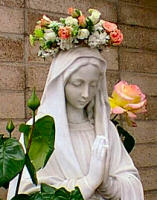
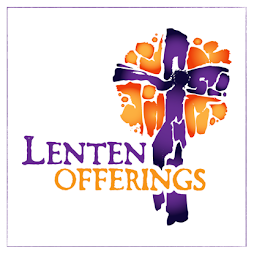




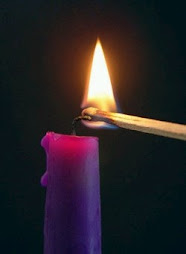
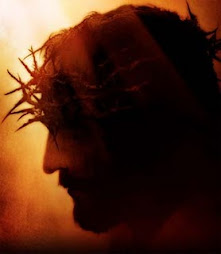

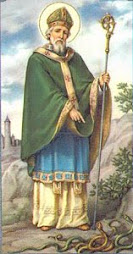







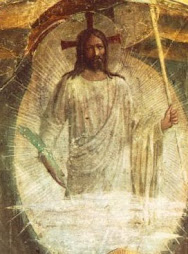
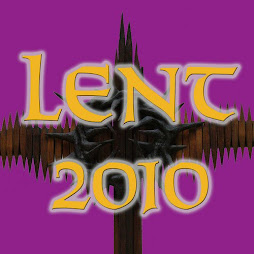

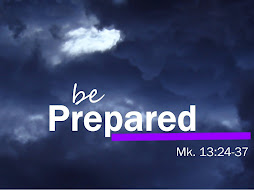


No comments:
Post a Comment